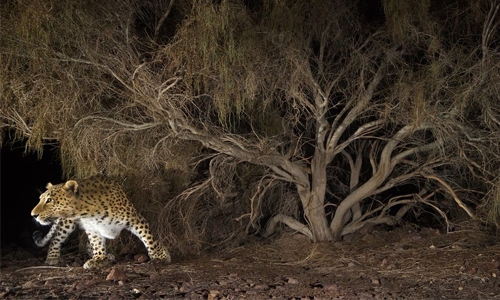Why Iran is jailing wildlife experts?
Fighting for the protection of Iran’s endangered leopards and cheetahs cost Kavous Seyed Emami his life. Iranian authorities arrested and interrogated the 64-year-old professor of sociology and director of the Persian Wildlife Heritage Foundation for “espionage” on January 24, 2018. He died 17 days later under suspicious circumstances in Tehran’s infamous Evin prison. Eight others affiliated with the Persian Wildlife Heritage Foundation were likewise arrested and remain imprisoned in Evin. “The Iranian authorities still haven’t provided a shred of evidence to justify locking up these environmentalists,” said Sarah Leah Whitson, Middle East and North Africa director at Human Rights Watch.
Seyed Emami, a dual citizen with a Canadian passport, and the others were arrested while trying to raise public awareness about Iran’s environment and endangered species such as the Asiatic cheetah (now fewer than 50 left in Iran) and the Persian leopard. “He was a lover of not just Iran but its wildlife, its people,” his son Mehran Seyed Emami told the Associated Press a month after his father’s death. Environmentalists are frequent targets of Iran’s Islamic Revolutionary Guard Corps because campaigns to protect land for animals often run counter to the Guard Corps’ money-making and environmentally destructive operations, such as building dams or planning missile sites on protected land.
As part of their research, the staff at Persian Wildlife Heritage frequently had contact with foreign experts and set up cameras to track the rare wild cats. Those two actions — normal for any other wildlife foundation around the world — were pretence for an Iranian prosecutor to charge Seyed Emami and his colleagues with espionage for “gathering classified information” on the cameras and passing it along to foreign governments. They were tried and sentenced in Iran’s Islamic Revolutionary Court, an extrajudicial branch dedicated to alleged national security charges. It operates in secret and frequently withholds information from family members, forces “confessions” from defendants and even denies them a lawyer.
The Guard Corps has arrested at least 50 Iranian environmental activists in 2018 alone for questioning the Corps’ policies to divert water and other land use issues. The activists’ ability to mobilize protesters — especially farmers — aroused the Guard Corps’ suspicions. “The authorities should be praising these activists for addressing Iran’s dire environmental problems, but the country’s hard-line security institutions rarely miss an opportunity to punish independent civic initiative,” Whitson said.
Related Posts

